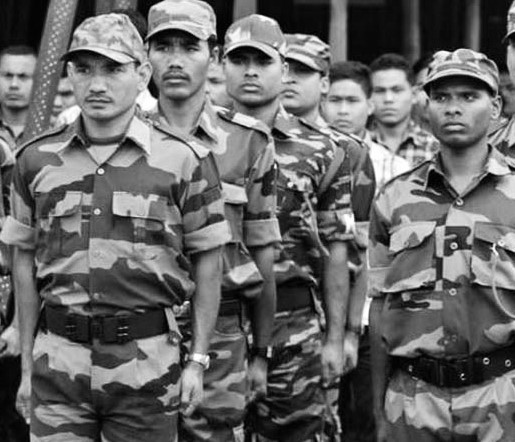Landmark Peace Accord: Centre, Assam Government, and ULFA Ink Historic Deal

New Delhi: In a significant development, a comprehensive peace agreement has been inked in Delhi, involving the Central government, the Assam administration, and the United Liberation Front of Asom (ULFA), marking the resolution of a longstanding conflict with one of the prominent insurgent groups in the northeast region. It’s worth noting that the ULFA (Independent) faction, under the leadership of Paresh Baruah, remains uninvolved in the dialogue process.
This historic peace accord with Assam’s oldest insurgent group aims to tackle critical issues, including illegal immigration, land rights for indigenous communities, and a financial package for the overall development of Assam. Home Minister Amit Shah, addressing reporters in Delhi, emphasized the commitment of the Central government to fulfill all reasonable demands of ULFA within a defined timeline, with the assurance that the organization will subsequently disband.
“We want to assure the ULFA leadership that their trust in the Centre for the success of the peace process will be honored,” stated Mr. Shah, crediting Prime Minister Narendra Modi for fostering peace and stability in the northeast. He highlighted the removal of the Armed Forces (Special) Powers Act (AFSPA) from various areas in Assam and other northeast states as evidence of the region’s diminishing insurgency.
Seated alongside Mr. Shah, Assam Chief Minister Himanta Biswa Sarma expressed confidence that the peace deal with ULFA would significantly contribute to resolving the insurgency issue in the region. The Modi government has actively pursued peace agreements with various insurgent groups in the northeast, with the latest being the tripartite peace accord signed with Manipur’s oldest valley-based armed group, UNLF, in November.
Founded on April 7, 1979, in Sivasagar, Assam, the ULFA initially aimed to establish an independent sovereign state for the indigenous Assamese people. Over the years, the group transitioned from initially perceived social work to armed resistance against the Indian government. The branding of ULFA as a banned terrorist organization followed events such as the killing of Surendra Paul, a prominent tea planter, and subsequent extortion and threats to tea estate owners, which prompted decisive action by the Indian government in response to international pressure.
ULFA the oldest insurgent group of Assam agreed to abjure the path of violence. Speaking on the signing of a memorandum of settlement with ULFA.
https://t.co/6H1DIHmmHy— Amit Shah (@AmitShah) December 29, 2023
Tragedy Strikes in French Alps: British Mother and Son Killed in Skiing Avalanche








